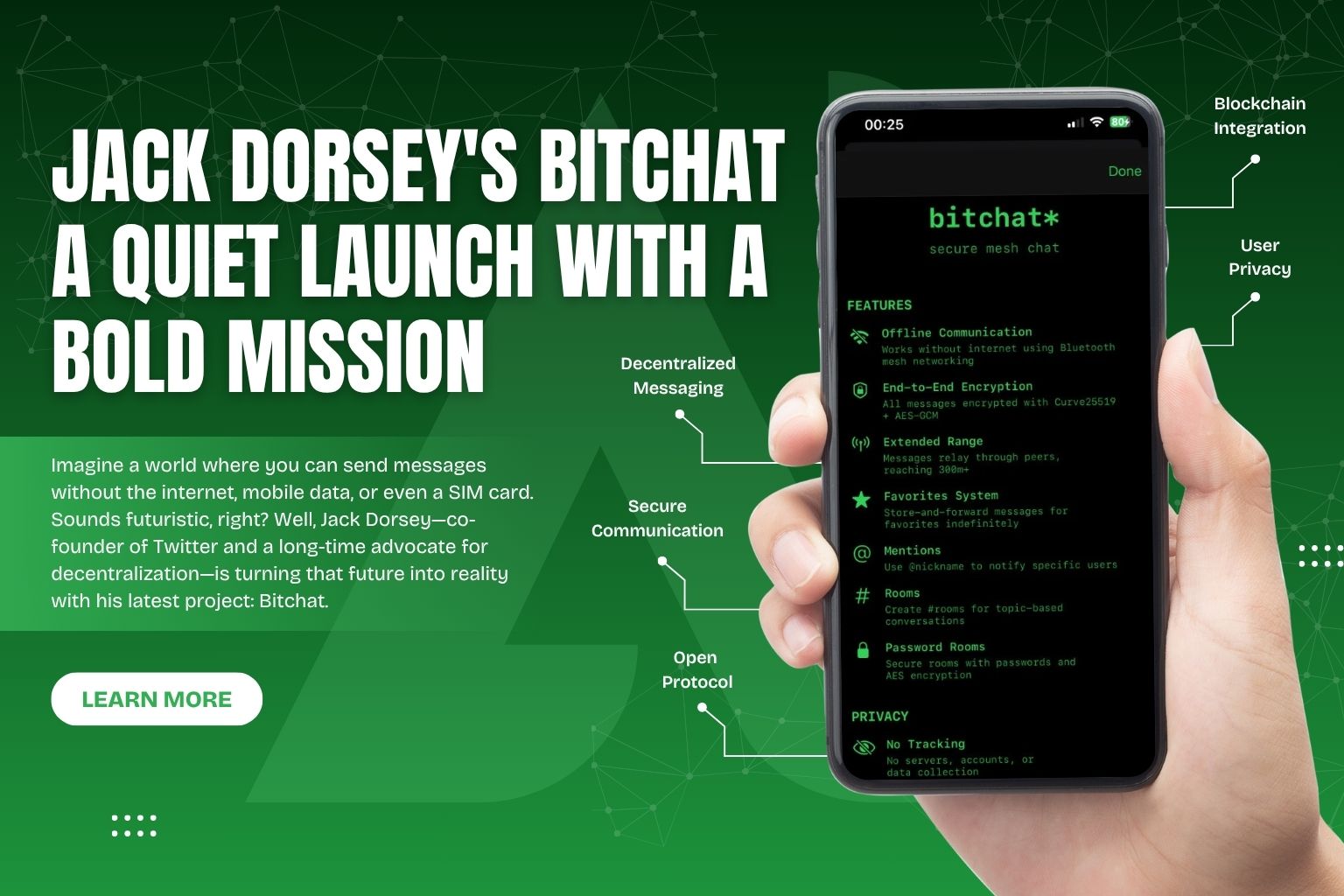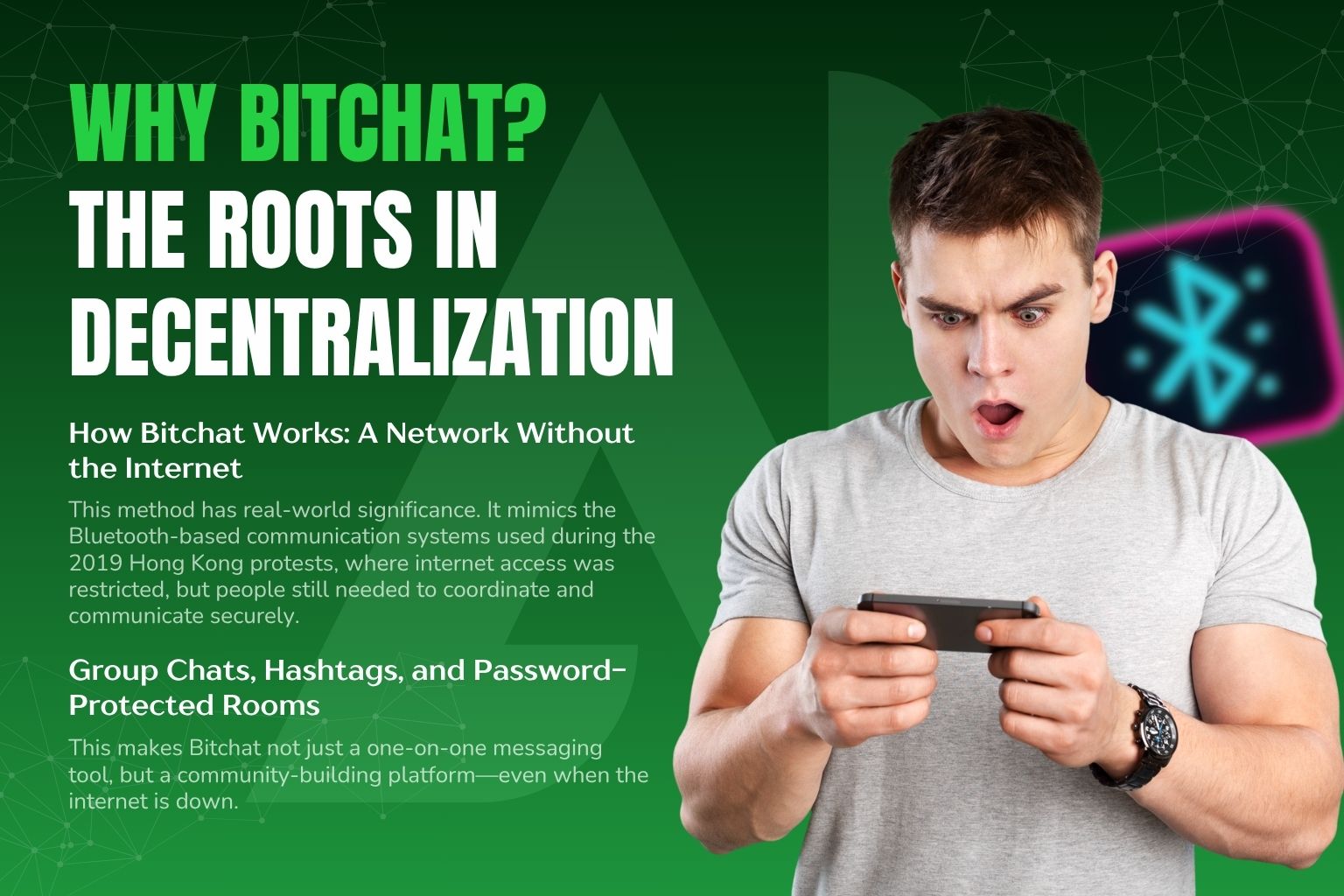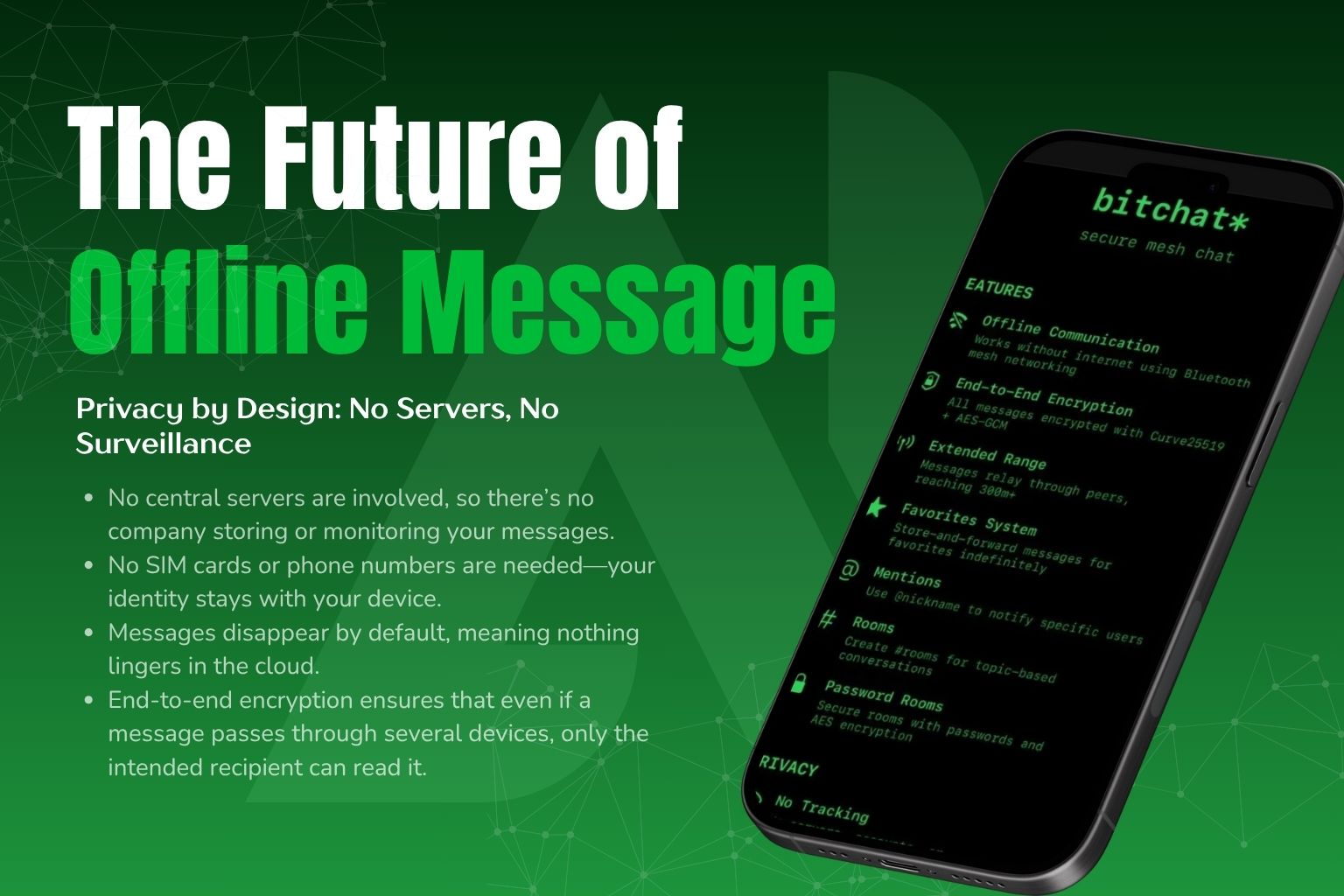Jack Dorsey's Bitchat: The Bluetooth Messaging App Built for Privacy and Freedom
Smash Code
Jul 10, 2025

Imagine a world where you can send messages without the internet, mobile data, or even a SIM card. Sounds futuristic, right? Well, Jack Dorsey—co-founder of Twitter and a long-time advocate for decentralisation—is turning that future into reality with his latest project: Bitchat.
This isn’t just another messaging app. It’s a radical step forward in peer-to-peer communication, one that challenges the centralised giants like WhatsApp and Messenger. And it’s powered not by Wi-Fi or mobile networks, but by Bluetooth. (Bitchat for Android)
A Quiet Launch with a Bold Mission
On July 6, Jack Dorsey took to social media to announce an unexpected personal experiment in decentralised communication. He introduced Bitchat, a new messaging app now in beta via Apple’s TestFlight platform.
What makes Bitchat unique? It’s a Bluetooth-only messaging system that doesn’t need the internet, a phone number, or even central servers to work. It operates entirely on peer-to-peer mesh networks, connecting devices as they move through physical spaces, like passengers in a train station, students on a campus, or protesters at a rally.
Why Bitchat? The Roots in Decentralisation

To understand Bitchat’s purpose, we need to understand Jack Dorsey. After stepping down from Twitter, Dorsey shifted focus to projects that aim to decentralise digital life—from social media (like Bluesky and Damus) to payments (Block, formerly Square).
Dorsey has been vocal about the problems with centralised platforms: censorship, surveillance, data breaches, and corporate control. Bitchat is his response, offering users a communication tool that’s private, censorship-resistant, and free from corporate infrastructure.
How Bitchat Works: A Network Without the Internet

At its core, Bitchat is built on a Bluetooth mesh network. Here’s how it works:
- No Wi-Fi or cellular data needed. The app connects to nearby devices using Bluetooth.
- Messages “hop” from one device to another. This means a message can travel across a chain of users, extending far beyond typical Bluetooth range.
- Bridge devices play a key role, acting like temporary towers that pass messages forward, even when you're not in direct contact with the recipient.
- Store-and-forward functionality allows messages to be held temporarily and delivered once the receiving user is back online or in range.
This method has real-world significance. It mimics the Bluetooth-based communication systems used during the 2019 Hong Kong protests, where internet access was restricted, but people still needed to coordinate and communicate securely.
Privacy by Design: No Servers, No Surveillance
Bitchat’s most powerful feature might be what it doesn’t do:
- No central servers are involved, so there’s no company storing or monitoring your messages.
- No SIM cards or phone numbers are needed—your identity stays with your device.
- Messages disappear by default, meaning nothing lingers in the cloud.
- End-to-end encryption ensures that even if a message passes through several devices, only the intended recipient can read it.
These features set Bitchat apart from mainstream messaging apps like WhatsApp, which—even with encryption—still require phone numbers, internet access, and rely on Meta-owned infrastructure.
Group Chats, Hashtags, and Password-Protected Rooms
Despite its minimalist architecture, Bitchat isn’t short on features. It includes:
- Group chats, referred to as “rooms,” where users can connect with multiple people.
- Hashtag-named rooms, allowing for creative, searchable group naming.
- Password-protected chats add an extra layer of security for private conversations.
This makes Bitchat not just a one-on-one messaging tool, but a community-building platform—even when the internet is down.
Coming Soon: Wi-Fi Direct for Faster Speeds
Bluetooth is reliable for close-range communication, but it has its limits in speed and range. To overcome this, the Bitchat team is planning to introduce Wi-Fi Direct in future updates.
Wi-Fi Direct allows devices to connect directly without a traditional router. This will dramatically increase data transfer speeds and range, making Bitchat even more powerful in peer-to-peer environments.
The Bigger Picture: Communication Without Control
The release of Bitchat isn’t just a tech experiment—it’s part of a larger movement. Across the world, there’s growing concern about the control Big Tech holds over how we communicate. Platforms like Facebook Messenger, Instagram, and WhatsApp operate on central servers and often collect vast amounts of user data.
In contrast, Bitchat is about giving power back to the people, letting users connect without fear of censorship, surveillance, or data exploitation. This could be especially important in countries with heavy government control or frequent internet shutdowns.
As Dorsey himself described, it’s a “personal experiment” in Bluetooth mesh networks, encryption models, and decentralised communication. But if the success of other decentralised apps like Damus and Bluesky is any indication, Bitchat might grow far beyond an experiment.
Bitchat vs WhatsApp: A Quick Comparison
Feature | Bitchat | |
Internet required | ❌ | ✅ |
Phone number needed | ❌ | ✅ |
Central servers | ❌ | ✅ |
Encrypted | ✅ | ✅ |
Peer-to-peer mesh | ✅ | ❌ |
Disappearing messages by default | ✅ | Optional |
Works during internet shutdown | ✅ | ❌ |
Privacy-first design | ✅ | ❌ (Meta-owned) |
Final Thoughts: The Future of Offline Messaging

As we move into an era of increased surveillance, cyber threats, and connectivity blackouts, tools like Bitchat offer a refreshing alternative. They remind us that communication doesn't have to be centralised, tracked, or vulnerable to shutdowns.
With Bitchat, Jack Dorsey isn't just building an app—he’s testing the boundaries of what's possible when we strip away the internet and give control back to users. It may still be in beta, but the idea behind it is powerful: a messaging platform that works offline, protects your privacy, and respects your freedom.
In a world where every click is tracked and every message stored, Bitchat gives us something rare—a chance to talk, freely and privately, once again.